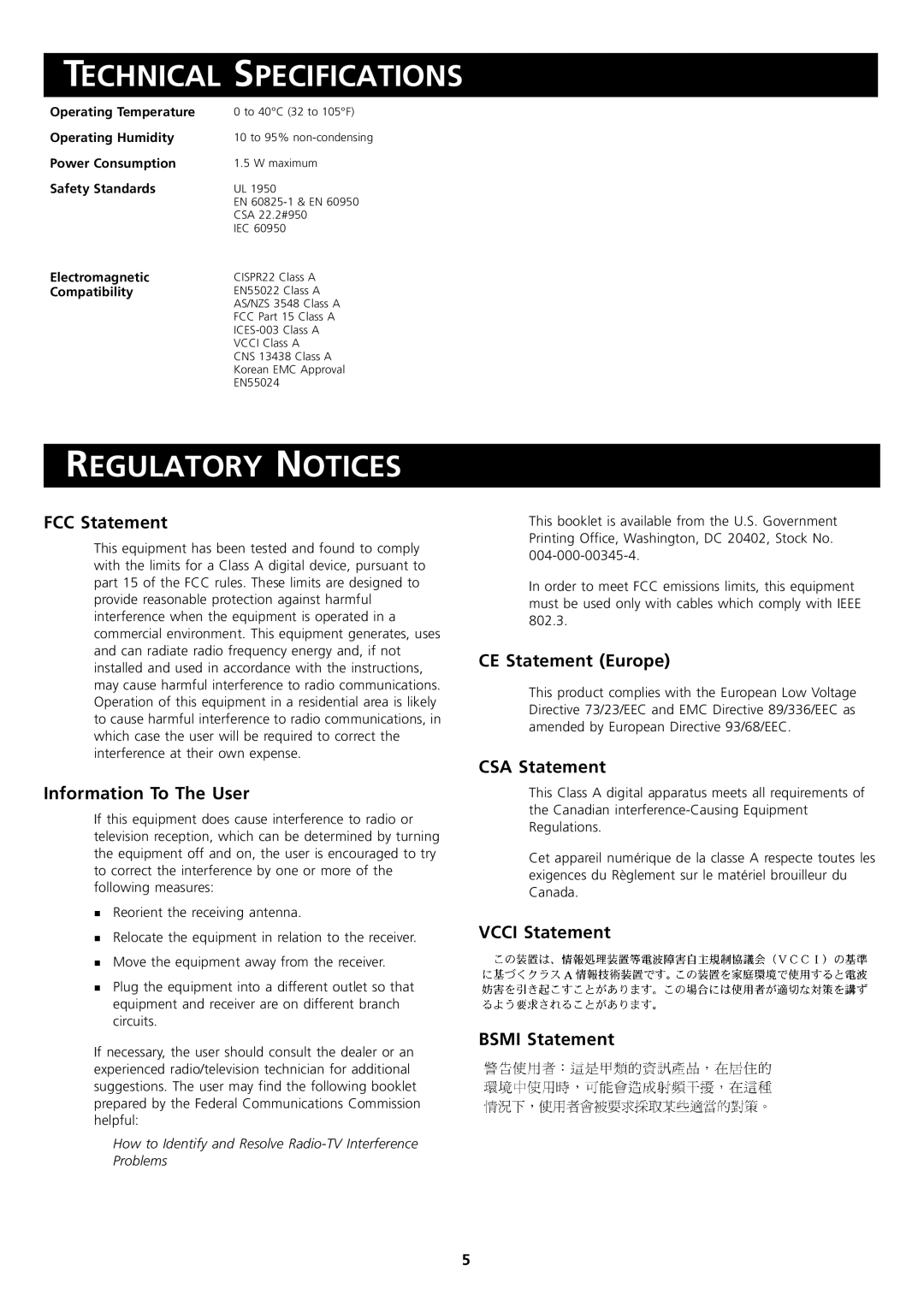
TECHNICAL SPECIFICATIONS
Operating Temperature | 0 to 40°C (32 to 105°F) |
Operating Humidity | 10 to 95% |
Power Consumption | 1.5 W maximum |
Safety Standards | UL 1950 |
| EN |
| CSA 22.2#950 |
| IEC 60950 |
Electromagnetic | CISPR22 Class A |
Compatibility | EN55022 Class A |
| AS/NZS 3548 Class A |
| FCC Part 15 Class A |
| |
| VCCI Class A |
| CNS 13438 Class A |
| Korean EMC Approval |
| EN55024 |
REGULATORY NOTICES
FCC Statement
his equipment has been tested and found to comply with the limits for a Class A digital device, pursuant to part 15 of the FCC rules. These limits are designed to provide reasonable protection against harmful interference when the equipment is operated in a commercial environment. This equipment generates, uses and can radiate radio frequency energy and, if not installed and used in accordance with the instructions, may cause harmful interference to radio communications. Operation of this equipment in a residential area is likely to cause harmful interference to radio communications, in which case the user will be required to correct the interference at their own expense.
Information To The User
If this equipment does cause interference to radio or television reception, which can be determined by turning the equipment off and on, the user is encouraged to try to correct the interference by one or more of the following measures:
Reorient the receiving antenna.
Relocate the equipment in relation to the receiver.
TMove the equipment away from the receiver.
Plug the equipment into a different outlet so that equipment and receiver are on different branch circuits.
If necessary, the user should consult the dealer or an experienced radio/television technician for additional suggestions. The user may find the following booklet prepared by the Federal Communications Commission helpful:
How to Identify and Resolve Radio-TV Interference Problems
This booklet is available from the U.S. Government Printing Office, Washington, DC 20402, Stock No.
In order to meet FCC emissions limits, this equipment must be used only with cables which comply with IEEE 802.3.
CE Statement (Europe)
This product complies with the European Low Voltage Directive 73/23/EEC and EMC Directive 89/336/EEC as amended by European Directive 93/68/EEC.
CSA Statement
This Class A digital apparatus meets all requirements of the Canadian
Cet appareil numérique de la classe A respecte toutes les exigences du Règlement sur le matériel brouilleur du Canada.
VCCI Statement
BSMI Statement
5
